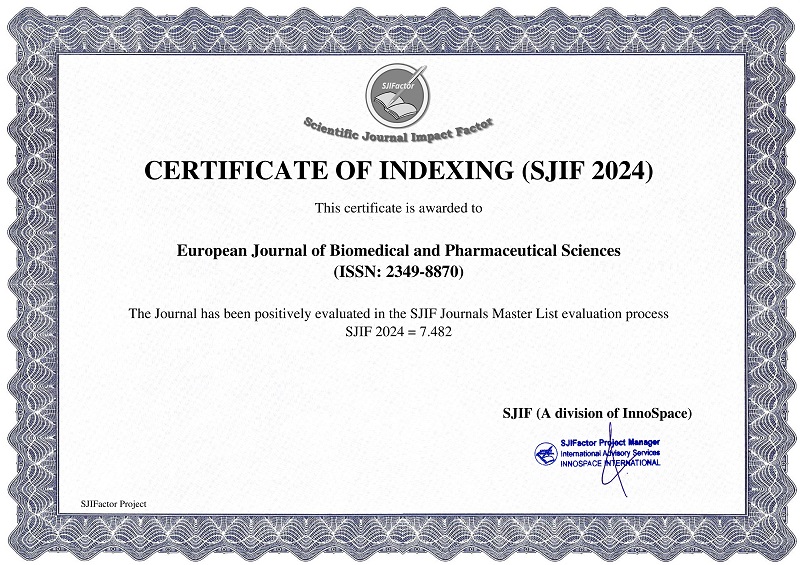EFFECT OF SHORT-TERM EXPOSURE TO FORMALIN ON KIDNEY FUNCTION TESTS OF STUDENTS IN NNEWI.
Ihim Augustine Chinedu, Ogbodo Emmanuel Chukwuemeka*, Oguaka Victor Nwabunwanne, Ozuruoke Donatus Francis Ndumnworo, Okwara Emmanuel Chidiebere, Nwovu Anthony Igube, Amah Ubuo Kalu, Abiodun Babatunde Emmanuel.
ABSTRACT
Formaldehyde is extensively used to preserve cadavers in departments of anatomy. This study investigated the effect of short-term exposure to formalin on kidney function tests of students in Nnewi. There is paucity of information on this study in Nnewi hence the research. A total number of 50 students (male and female) aged 18-30 years, were randomly recruited into the pre and post experimental design study. Five milliliters (5mls) each of baseline and post-formalin exposure blood samples were collected from each participant and used for the analysis of biochemical parameters. Serum creatinine was determined by Jaffe Slot Alkaline Picrate method; urea by Berthelot method; uric acid by uricase method; Albumin by Bromocresol Green method; Total protein by Biuret method and electrolytes (Na+, K+, Cl-, and HCO3-) were determined using Ion Selective Electrode. Data obtained were analyzed using paired Students t-test. Results showed a significant increase in the mean serum urea (5.41±1.23 vs 4.49±1.17), uric acid (356.24±55.09 vs 306.96±57.90) , serum albumin, total protein and electrolytes (Na+, K+, Cl-, and HCO3-) levels post formalin exposure when compared with pre formalin exposure (p< 0.05) whereas, the mean serum creatinine level did not differ significantly post formalin exposure (p>0.05). In conclusion, short term exposure to formalin caused a significant increase in the mean serum levels of urea, uric acid, albumin, total protein as well as the electrolytes levels.
Keywords: Formalin, Creatinine, Urea, Uric acid, Albumin, Total protein, Electrolytes, Student, Dissection Laboratory.
[Full Text Article]
[Download Certificate]


 Impact Factor : 8.181
Impact Factor : 8.181 






